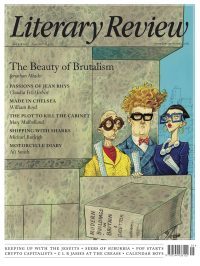Richard Vinen
The Past is Another Country
Rule, Nostalgia: A Backwards History of Britain
By Hannah Rose Woods
WH Allen 400pp £20
The British obsession with the past is nothing new. Even the most self-conscious modernisers evoke it – hence Harold Wilson’s fixation with Churchill and Tony Blair’s cringe-making references to the Sixties. People have often looked back to some lost golden age, though when a historian examines those golden ages, they always turn out to be periods that were riven by doubt and division. Hannah Rose Woods illustrates this by starting in the present and then working her way back to the 16th century and those British foundation myths that revolve around Protestantism, separation from Europe, global adventurism and the cosier bits of Shakespeare.
Summarising the book in a paragraph is a bit unfair. Woods has a taste for sweeping generalisation, but she can also be subtle. This virtue is displayed in the middle part of the book, where she captures the contradictory ways in which people often recalled the recent past. She shows, for example, how the old described the harshness of their early lives in ways that were simultaneously realistic and romanticised, and how some people felt that there was something melancholy about the coming of peace in 1945. The excellent chapter ‘1914–1880’ describes how an age that is now often seen through a haze of ‘is there honey still for tea?’ sentimentality often seemed like one of febrile modernity at the time.
However, although I have not mentioned many complexities of the argument, I have also missed out some padding, repetition and stating the bloody obvious. One senses that this is a book designed to be discussed – on Start the Week, at literary festivals and at publishers’ lunches –

Sign Up to our newsletter
Receive free articles, highlights from the archive, news, details of prizes, and much more.@Lit_Review
Follow Literary Review on Twitter
Twitter Feed
It wasn’t until 1825 that Pepys’s diary became available for the first time. How it was eventually decrypted and published is a story of subterfuge and duplicity.
Kate Loveman tells the tale.
Kate Loveman - Publishing Pepys
Kate Loveman: Publishing Pepys
literaryreview.co.uk
Arthur Christopher Benson was a pillar of the Edwardian establishment. He was supremely well connected. As his newly published diaries reveal, he was also riotously indiscreet.
Piers Brendon compares Benson’s journals to others from the 20th century.
Piers Brendon - Land of Dopes & Tories
Piers Brendon: Land of Dopes & Tories - The Benson Diaries: Selections from the Diary of Arthur Christopher Benson by Eamon Duffy & Ronald Hyam (edd)
literaryreview.co.uk
Of the siblings Gwen and Augustus John, it is Augustus who has commanded most attention from collectors and connoisseurs.
Was he really the finer artist, asks Tanya Harrod, or is it time Gwen emerged from her brother’s shadow?
Tanya Harrod - Cut from the Same Canvas
Tanya Harrod: Cut from the Same Canvas - Artists, Siblings, Visionaries: The Lives and Loves of Gwen and Augustus John by Judith Mackrell
literaryreview.co.uk